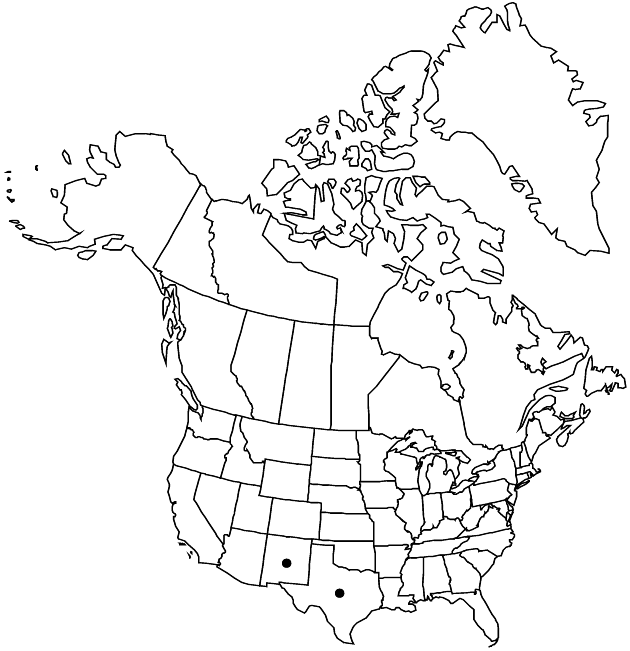Difference between revisions of "Xanthisma viscidum"
Sida 20: 1410. 2003.
imported>Volume Importer |
imported>Volume Importer |
||
| Line 71: | Line 71: | ||
|publication year=2003 | |publication year=2003 | ||
|special status=Endemic | |special status=Endemic | ||
| − | |source xml=https:// | + | |source xml=https://bitbucket.org/aafc-mbb/fna-data-curation/src/2e0870ddd59836b60bcf96646a41e87ea5a5943a/coarse_grained_fna_xml/V19-20-21/V20_896.xml |
|tribe=Asteraceae tribe Astereae | |tribe=Asteraceae tribe Astereae | ||
|genus=Xanthisma | |genus=Xanthisma | ||
Latest revision as of 20:06, 5 November 2020
Annuals, 25–60 cm; taproots 2–8+ cm. Stems 1, branched, moderately stout to stout, not wiry, stipitate-glandular. Leaves: basal usually withering by flowering; cauline evenly spaced, obovate to oblanceolate or oblong, 5–30 × 2–15 mm, markedly reduced distally, margins coarsely serrate to dentate, teeth 4–7 per side, entire, faces densely stipitate-glandular. Peduncles densely stipitate-glandular, usually ebracteate. Involucres hemispheric, 8–10 × 13–18 mm. Phyllaries in 5–7 series, linear, 2–7 mm, apices narrowly obtuse to acuminate, faces stipitate-glandular. Ray florets 14–18; corollas yellow, tubes 3–3.5 mm, laminae 2.8–3.5 × 1.5–2 mm. Disc florets 20–30+; corollas 5.5–6 mm. Cypselae oblong to narrowly ellipsoid, 2.3–2.7 mm, 18–22-nerved, sparsely whitish-silky; pappi tawny, 5–6 mm, mostly equal. 2n = 8.
Phenology: Flowering summer–fall.
Habitat: Sandy soils on flats, roadsides
Elevation: 1000–1700 m
Discussion
Selected References
None.
